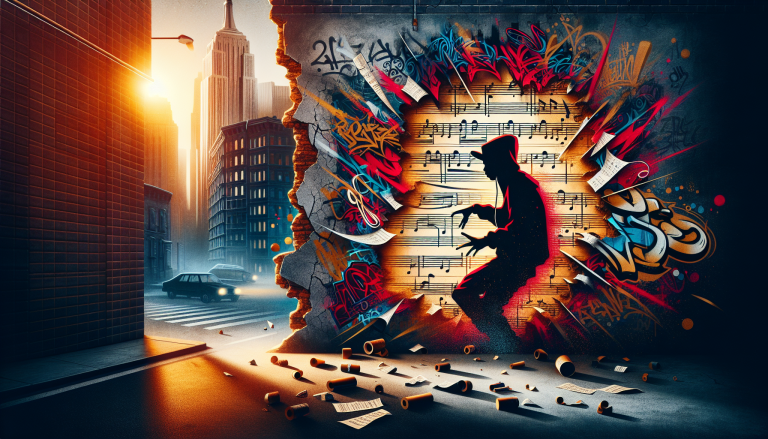The Pulse of the Streets: How Hip-Hop Transformed American Music Forever
From Street Corners to Global Phenomenon
Hip-hop isn’t just a genre of music—it’s a cultural revolution that erupted from the concrete playgrounds of the Bronx in the 1970s, transforming the landscape of American music forever. What began as a grassroots expression of urban youth has become a global force that speaks truth to power, celebrates creativity, and continues to reshape artistic boundaries.
The story of hip-hop is fundamentally a story of resilience and innovation. In the economically challenged neighborhoods of New York City during the early 1970s, African American and Latino youth found themselves creating art from almost nothing. Block parties became crucibles of creativity, where DJs like Kool Herc pioneered techniques that would define an entire musical movement.
Roots and Revolutionary Techniques
Pioneering DJs discovered that by using two turntables and isolating and extending the instrumental breaks in funk and soul records, they could create entirely new sonic landscapes. This technique, known as “breakbeat” DJing, became the fundamental rhythm of hip-hop. Young MCs would rap over these beats, telling stories of street life, struggle, and hope.
“Hip-hop is not just music, it’s a cultural movement,” says legendary rapper Chuck D of Public Enemy. Indeed, hip-hop became a voice for communities often marginalized and overlooked, providing a platform for social commentary and personal expression.
Legendary Artists Who Defined a Generation

The genre quickly evolved, with artists like Grandmaster Flash, Run-DMC, and LL Cool J pushing musical and cultural boundaries. By the late 1980s and early 1990s, groups like N.W.A were using hip-hop as a powerful form of social protest, exposing systemic inequalities and challenging mainstream narratives about urban life.
Artists like Tupac Shakur and The Notorious B.I.G. transformed hip-hop into a nuanced art form that could be simultaneously raw, poetic, and deeply introspective. Their music transcended simple entertainment, becoming complex narratives about Black experience in America.
Global Impact and Musical Evolution
What makes hip-hop extraordinary is its constant reinvention. From its early days of block party performances to becoming a multi-billion dollar global industry, the genre has consistently reflected and shaped cultural conversations. It has spawned subgenres like conscious rap, trap, and alternative hip-hop, each offering unique perspectives and sonic landscapes.
Artists like Kendrick Lamar have elevated hip-hop to a form of high art, winning Pulitzer Prizes and creating albums that are as much social commentary as they are musical experiences. His work demonstrates how hip-hop can be simultaneously revolutionary, introspective, and musically complex.
Beyond Music: A Cultural Catalyst
Hip-hop’s influence extends far beyond music. It has shaped fashion, language, visual art, and social movements. From streetwear to political activism, the culture born in the Bronx has become a global language of youth expression.
Economically, hip-hop has created entire industries. Successful artists have become entrepreneurs, launching clothing lines, record labels, and media companies. Figures like Jay-Z have transformed from rappers to business moguls, demonstrating the genre’s transformative power.
The Continuing Legacy
Today, hip-hop represents a complex, multifaceted art form that continues to evolve. It remains a powerful medium for social commentary, personal storytelling, and artistic innovation. From its humble beginnings at block parties to global streaming platforms, hip-hop has proven itself to be more than just music—it’s a profound cultural force.
The genre’s ability to adapt, challenge, and reimagine itself ensures its ongoing relevance. Each new generation of artists brings fresh perspectives, ensuring that hip-hop remains a dynamic, living art form.
As rapper Nas once said, “Hip-hop is really about the stories we tell, the experiences we share.” And what incredible stories they continue to be.
From the streets of the Bronx to global stages, hip-hop remains a testament to creativity, resilience, and the transformative power of artistic expression. It’s not just a genre of music—it’s a movement, a culture, and a revolutionary form of storytelling that continues to shape our world.